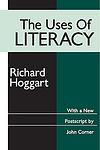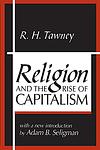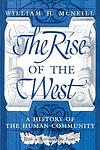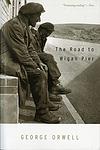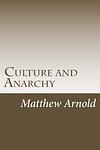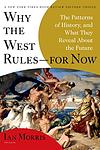The Greatest "European History, Social sciences" Books of All Time
Click to learn how this list is calculated.
This list represents a comprehensive and trusted collection of the greatest books. Developed through a specialized algorithm, it brings together 300 'best of' book lists to form a definitive guide to the world's most acclaimed books. For those interested in how these books are chosen, additional details can be found on the rankings page.
Genres
European History is a category of books that focuses on the historical events, people, and cultures of Europe. It covers a wide range of topics, including the ancient civilizations of Greece and Rome, the Middle Ages, the Renaissance, the Enlightenment, and the modern era. This category of books explores the political, social, economic, and cultural developments that have shaped Europe over the centuries, from the rise and fall of empires to the impact of wars and revolutions. It provides readers with a deeper understanding of the rich and complex history of Europe and its influence on the world.
Social sciences is a broad category of books that encompasses the study of human society and social relationships. This includes disciplines such as sociology, psychology, anthropology, economics, political science, and history. Social science books aim to understand and explain human behavior, social structures, and cultural norms. They explore topics such as social inequality, power dynamics, social change, and the impact of technology on society. Social science books provide valuable insights into the complexities of human interactions and offer a deeper understanding of the world we live in.
Countries
Date Range
Reading Statistics
Click the button below to see how many of these books you've read!
Download
If you're interested in downloading this list as a CSV file for use in a spreadsheet application, you can easily do so by clicking the button below. Please note that to ensure a manageable file size and faster download, the CSV will include details for only the first 500 books.
Download-
1. Das Kapital by Karl Marx
This influential work is a comprehensive critique of political economy, exploring the complex nature of capitalism, its production processes, and its societal impact. The book delves into the intricacies of commodities, labor theory of value, surplus value, and exploitation, arguing that capitalism is inherently unstable and prone to periodic crises. It also posits that the capitalist system ultimately leads to the concentration of wealth in fewer hands, causing social inequality and paving the way for its own demise. The book is widely regarded as a foundational text in the development of socialist and communist ideologies.
-
2. The Making of the English Working Class by E. P. Thompson
This book is a comprehensive historical analysis of the formation of the English working class from the late 18th century to the mid-19th century. The author meticulously examines various aspects of society including the Industrial Revolution, the rise of Methodism, and political movements, arguing that the working class was not a byproduct of economic factors alone, but was actively self-formed through struggles over issues like workers' rights and political representation. The book is widely regarded as a seminal text in social history due to its focus on the experiences and agency of ordinary people.
-
3. A Study of History by Arnold J. Toynbee
"A Study of History" is an extensive 12-volume universal history, exploring the development and decay of world civilizations throughout the ages. The author proposes that civilizations rise and fall based on their responses to challenges, both physical and social. The book also puts forth the idea that religions play a crucial role in the rise of civilizations and that the failure of a civilization's creative power can lead to its decline. The work is renowned for its scholarly depth and its controversial theories about the cyclical nature of history.
-
4. Christ Stopped at Eboli: The Story of a Year by Carlo Levi
The book is a memoir about the author's year of exile in a remote region of southern Italy during the fascist regime. It depicts the harsh living conditions, poverty, and backwardness of the area, where the peasants' lives are ruled by superstition and tradition. Despite the difficulties, the author finds beauty and dignity in the people and their way of life, and he paints a vivid picture of their culture, beliefs, and struggles. The title refers to the locals' belief that they have been forgotten by modernity and even by God.
-
5. The Protestant Ethic and the Spirit of Capitalism by Max Weber
This book is a sociological study that explores the relationship between the ethics of ascetic Protestantism and the emergence of the spirit of modern capitalism. The author argues that the religious ideas of groups such as the Calvinists played a role in creating the capitalistic spirit. The work is noted for its rigorous methodology and its contribution to the broader understanding of the origins and development of capitalism. It has been widely influential across social sciences, especially in sociology and economics.
-
6. The Captive Mind by Czesław Miłosz
"The Captive Mind" is a thought-provoking exploration of the intellectual and moral dilemmas faced by artists and intellectuals living under oppressive regimes. Through a series of powerful and insightful essays, the author delves into the psychological and ideological transformations experienced by individuals who compromise their values and conform to the demands of totalitarianism. With a blend of personal anecdotes, historical analysis, and philosophical reflections, this book offers a profound examination of the complexities of intellectual freedom and the power of ideology.
-
7. The Uses of Literacy by Richard Hoggart
"The Uses of Literacy" is a sociological study that explores the impact of mass media and popular culture on traditional working-class values and communities in Britain during the mid-20th century. The author combines personal memoir with scholarly analysis to examine how the spread of American consumer culture and the rise of mass media have influenced British society, especially among the working class. The book serves as a critique of the commercialization of culture and the erosion of authentic, local cultures and traditions.
-
8. Sapiens: A Brief History of Humankind by Yuval Noah Harari
This book provides a comprehensive exploration of the history of the human species, tracing back from the earliest forms of Homo Sapiens to the modern day. It delves into evolutionary biology, the development of cultures and societies, and the rise of major ideologies and technologies. The book also discusses the future of the species, posing thought-provoking questions about our roles and responsibilities in a rapidly changing world.
-
9. Death in Rome by Wolfgang Koeppen
"Death in Rome" is a post-World War II novel that explores the lives of a German family, their friends, and associates during a reunion in Rome. Each character is representative of a different aspect of German society, and their interactions and experiences in the city serve as a commentary on the nation's struggle to come to terms with its recent past. The book also explores the themes of guilt, denial, and the lingering effects of war.
-
10. Love in the Western World by Denis de Rougemont
The book is an in-depth exploration of the concept of love as it has evolved in Western society, tracing its development from the myth of Tristan and Iseult to modern times. The author argues that the idea of passionate, romantic love that is prevalent in the West is fundamentally a form of destructive passion, often leading to pain and tragedy. The book also delves into the socio-cultural aspects of love, examining how societal norms and expectations shape our understanding and experience of love.
-
11. Religion And The Rise Of Capitalism by R. H. Tawney
"Religion and the Rise of Capitalism" is a comprehensive exploration of the historical relationship between the development of capitalism and the evolution of religious thought, particularly Protestant Christianity. The author delves into the moral and ethical dimensions of capitalism, arguing that its growth was significantly influenced by certain religious ideas. The book also discusses how religious beliefs have shaped economic systems and societal norms, and how these, in turn, have impacted religion.
-
12. The Rise of the West by William H. McNeill
"The Rise of the West" is a comprehensive historical narrative that explores the development of Western civilization from the early stages of human history to the 20th century. The book provides a detailed analysis of various civilizations around the world, their interactions, and the resulting cultural exchanges that have shaped the modern world. It also discusses the significant factors, such as technological advancements, religious transformations, and political changes, that have contributed to the West's ascendancy.
-
13. The Road to Wigan Pier by George Orwell
This book is a sociological exploration of the bleak living conditions among the working class in Lancashire and Yorkshire, England, in the 1930s. The author, who lived among the people, vividly describes the hardships of the poor and criticizes the systems that make them so. The latter part of the book presents a discussion on class and possible socialist solutions to the issues presented in the first part. It's a powerful critique of British society at the time and a call for better conditions for the working class.
-
14. The Order of Things by Michel Foucault
"The Order of Things" is a philosophical exploration of the historical changes in the human sciences, including economics, natural history, and philology. The author delves into the concept of 'epistemes' or the unconscious rules that govern the way people perceive the world, and how these have changed over the centuries. The book challenges the idea that knowledge has progressively improved over time, instead suggesting that each era has its own unique framework for understanding and interpreting the world.
-
15. Staying Power: The History of Black People in Britain by Peter Fryer
"Staying Power: The History of Black People in Britain" is a comprehensive account of the African diaspora in Britain from Roman times to the present day. The book explores the various contributions of Black people to the British society, culture, and economy, challenging the traditional narrative that Black presence in Britain began with the Windrush generation. The author delves into the struggles, achievements, and resilience of Black people in Britain, offering a nuanced and detailed historical perspective.
-
16. Religion and the Rise of Western Culture by Christopher Dawson
"Religion and the Rise of Western Culture" explores the deep influence of Christianity on the development of Western civilization. The author examines how Christianity shaped the cultural, political, and social aspects of Europe, particularly during the Middle Ages, and how it played a crucial role in the rise of the West. The book provides a comprehensive analysis of the interplay between religion and culture, highlighting the profound impact of religious beliefs on the evolution of Western society.
-
17. Culture and Anarchy by Matthew Arnold
This book is a series of essays that critically examines the culture and society of 19th-century England. The author argues that the pursuit of perfection and an ideal state of culture is the remedy to the social issues and disorder of the time. He presents two opposing forces, "culture" which seeks the holistic development of society, and "anarchy" which represents the chaos and disorder resulting from a lack of culture. Throughout the text, he explores the tension between these two forces, ultimately advocating for the importance of education and the pursuit of perfection in achieving a harmonious society.
-
18. London Labour and the London Poor by Henry Mayhew
This book provides a comprehensive look into the lives of the working poor in 19th century London. The author offers an in-depth analysis of the socio-economic conditions of the time, detailing the struggles and hardships faced by the city's lower classes. The book includes interviews with a wide range of people, from street-sellers and chimney sweeps to beggars and thieves, offering a vivid and often grim picture of Victorian London. It is considered an important social document for its first-hand account of the realities of urban poverty.
-
19. Why the West Rules - For Now: The Patterns of History, and What They Reveal About the Future by Ian Morris
This book is a comprehensive exploration of the historical and cultural patterns that have led to Western dominance in the world. The author uses a broad range of evidence from archaeology, genetics, and linguistics to trace the development of East and West from prehistoric times to the present, arguing that physical geography, rather than culture, religion, or great men, is the primary driving force behind the rise of the West. The book also offers a forecast for the future, predicting a shift in global power from the West to the East.
-
20. Gulag: A History by Anne Applebaum
"Gulag: A History" provides an in-depth historical account of the Soviet Union's forced labor camp system, known as the Gulag. The book explores the inception of these camps during the reign of Vladimir Lenin, their expansion under Joseph Stalin, and their eventual decline and closure. It also delves into the daily lives of the prisoners, their hardships, and the brutal conditions they endured. The book is based on a wealth of archival material, personal interviews, and memoirs, offering a comprehensive understanding of one of the darkest periods in human history.
-
21. Collapse by Jared Diamond
"Collapse" is an exploration of why certain societies throughout history have thrived while others have deteriorated and collapsed. The book delves into environmental problems, climate change, rapid population growth, and unwise political decisions as factors that contribute to the downfall of a civilization. The author uses examples from history such as the Mayans, the Vikings in Greenland, and modern examples like Rwanda and Haiti, to illustrate his points. It serves as both a historical analysis and a warning for modern societies to learn from the past in order to avoid a similar fate.
-
22. A History of the World in 100 Objects by Neil MacGregor
This book offers a unique perspective on world history, telling the story of humanity through the examination of 100 man-made objects. The author, a museum director, uses items from the British Museum, ranging from a 2 million-year-old Olduvai stone cutting tool to a contemporary credit card, to explore various themes such as trade, religion, art, science, and politics. The book provides a fascinating lens through which to view the evolution of human civilization.
-
23. Empire Of Cotton: A Global History by Sven Beckert
"Empire of Cotton" by Sven Beckert is a comprehensive global history of cotton, exploring its impact on the world economy, politics, and society from the 18th century to the present day. Beckert argues that cotton played a crucial role in the development of capitalism, colonialism, and imperialism, and that its production and trade were intimately linked to the exploitation of labor, the growth of slavery, and the rise of industrialization. The book offers a fascinating and thought-provoking perspective on the complex and often violent history of cotton and its enduring legacy in the modern world.
-
24. Rough Crossings by Simon Schama
"Rough Crossings" is a historical account of the experience of African American slaves during the American Revolution. It focuses on the British promise to grant freedom to slaves who joined their cause, and the subsequent journey of these former slaves to Nova Scotia and Sierra Leone. The book explores the complexities of this period in history, questioning the traditional narrative of the American Revolution and shedding light on the struggle for freedom and equality by African Americans.
-
25. Island on Fire: The Revolt That Ended Slavery in the British Empire by Tom Zoellner
The book chronicles the 1831 slave rebellion in Jamaica, a significant event that hastened the abolition of slavery in the British Empire. The narrative details the planning and execution of the revolt, the brutal suppression by the colonial authorities, and the aftermath, including the public outrage in Britain that led to legislative reform. The book also explores the role of key figures in the uprising, providing a detailed account of this pivotal moment in history.
Reading Statistics
Click the button below to see how many of these books you've read!
Download
If you're interested in downloading this list as a CSV file for use in a spreadsheet application, you can easily do so by clicking the button below. Please note that to ensure a manageable file size and faster download, the CSV will include details for only the first 500 books.
Download





